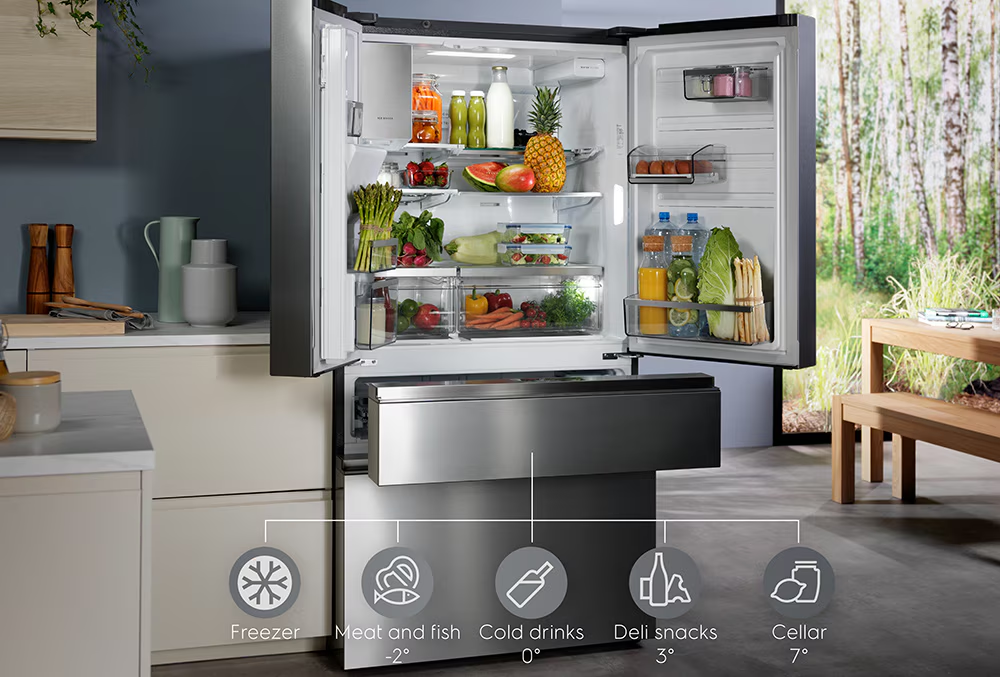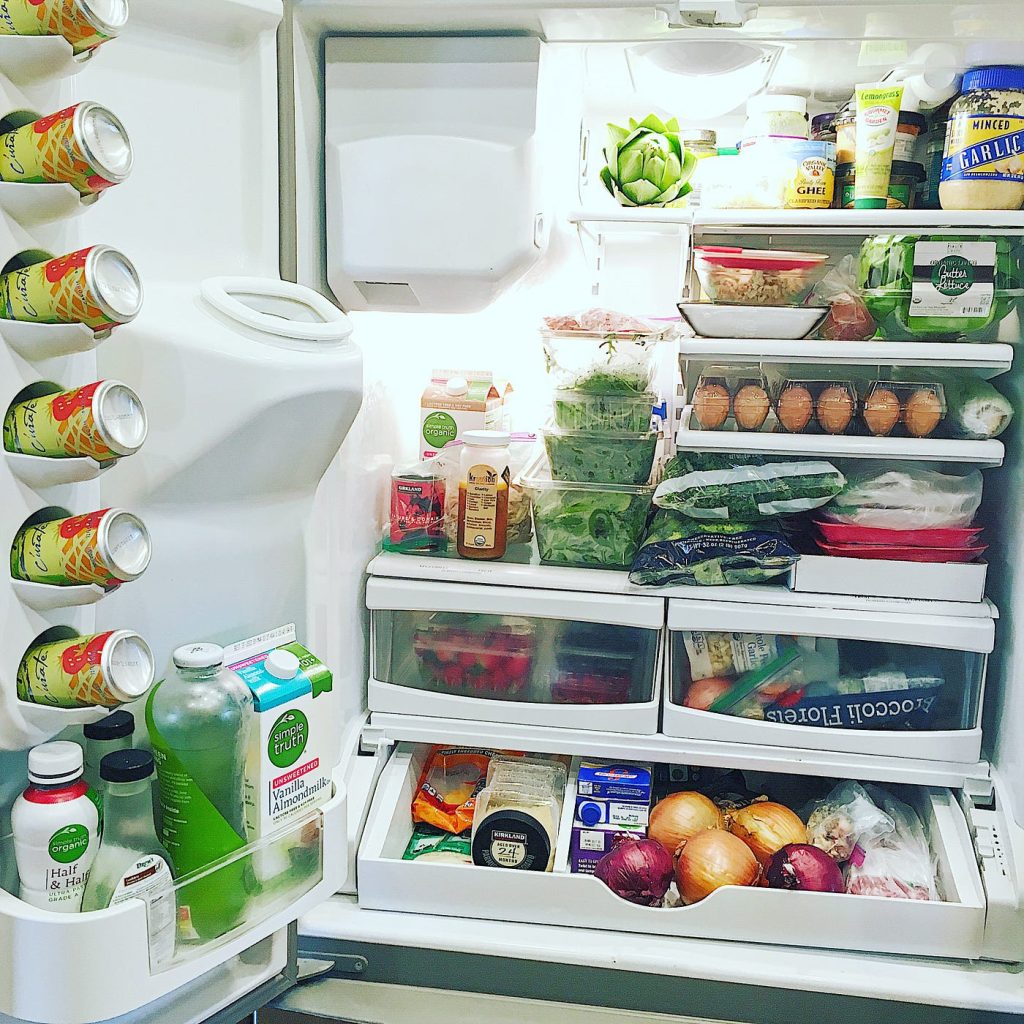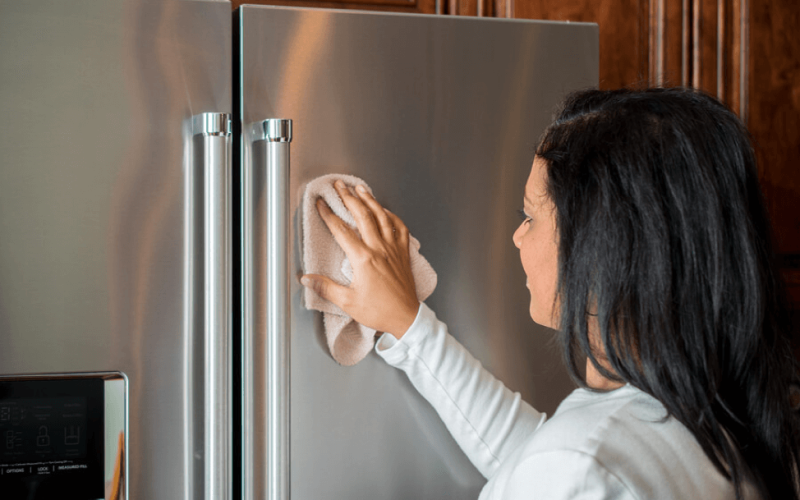Refrigerators are essential appliances in modern households, crucially keeping food fresh and safe to consume. However, like any other appliance, they require regular maintenance and care to function optimally and last longer.
Fortunately, Samsung parts are easily available, making it convenient to keep your refrigerator running smoothly. The useful advice and methods in this article will help you keep your refrigerator in good working order and extend its lifespan. Over time, by avoiding needless repairs and replacements, putting these suggestions into practice can save you money.
Regular Cleaning
Condenser Coils
Regular cleaning is one of the most straightforward ways to keep your refrigerator in top shape. The accumulation of dust and dirt on the condenser coils might cause the unit to operate harder and consume more energy, thus reducing its lifespan. You may increase efficiency and extend the life of the device by cleaning these coils at least twice a year.
To clean the coils, first unplug the refrigerator to ensure safety. Then, use a coil brush or vacuum to remove the accumulated dust. This simple maintenance task can significantly affect your fridge’s energy consumption and performance.
Interior and Exterior
Maintaining the cleanliness of your refrigerator’s exterior and inside also contributes to its continued effectiveness. Regularly wipe down shelves, drawers, and door seals with mild detergent and water. This not only keeps your fridge hygienic but also prevents build-up that can cause odors and bacteria growth, which can lead to food contamination.
Additionally, cleaning the exterior, especially the door seals, ensures they remain flexible and effective at trapping cold air inside. If food spills occur, clean them up immediately to prevent sticky residues that attract more dirt and grime. Thorough cleaning every few months is advisable.
Proper Temperature Settings

It’s critical to properly set the temperature of your refrigerator for both energy economy and food safety. The freezer should be set at 0°F (-18°C), and the refrigerator section should be approximately 37°F (3°C).
By maintaining these settings consistently, you can stop the compressor from overworking, which could result in early wear and tear and expensive repairs. A refrigerator that runs too cold can waste energy, while one that isn’t cold enough might compromise food safety.
Investing in a simple refrigerator thermometer can help you monitor and adjust temperatures accurately, ensuring your appliance operates within the optimal range.
Check Door Seals
The gaskets on the refrigerator doors are essential for maintaining cold air within. Over time, these seals can wear out or become damaged, leading to air leaks and increased energy consumption. Check the door seals frequently for deterioration indicators like tears or cracks and replace them as needed.
To test the seals, close the door on a piece of paper; if the paper readily comes out, the gasket needs to be changed. This simple test can save you significant amounts on energy bills and ensure your food stays at a safe temperature. Effective gaskets also prevent moisture build-up, which can lead to mold and bacteria growth.
Keep It Well-Stocked

Believe it or not, a well-stocked refrigerator operates more efficiently than an empty one. The cold items inside the fridge help maintain a stable temperature, reducing the workload on the compressor. However, avoid overloading the refrigerator, as this can obstruct air circulation and affect performance.
Aim for a balanced approach by keeping it reasonably full. Food also acts as insulation, which helps the refrigerator recover its temperature quickly after opening the door. On the other hand, a packed fridge can lead to inadequate cooling and spoiled food, so finding a middle ground is key.
Replace Worn-Out Parts
Over time, certain components of your refrigerator may wear out and need replacement. This includes parts like water filters, which should be replaced every six months, and the refrigerator light bulbs.
If you notice any unusual noises or a decline in cooling performance, it’s a good idea to consult a professional and replace faulty parts promptly.
Regular maintenance can help your refrigerator last longer by halting minor issues from becoming larger ones. Even minor components like door handles and shelves should be monitored and replaced if they show signs of wear and tear.
Additional Tips and Resources
For more in-depth guidance on refrigerator maintenance, consider consulting resources from trusted sources such as the Consumer Reports refrigerator maintenance guide. They offer insightful product reviews and best practices information that will assist you in making well-informed judgments regarding the maintenance of your appliances.
The detailed articles and expert tips can offer insights you may not have considered. Additionally, the ENERGY STAR recommendations offer insights into energy-efficient practices and ways to reduce your appliance’s environmental impact.
These resources emphasize the importance of choosing energy-efficient models and maintaining them properly to maximize their benefits. Using these suggestions can result in lower long-term energy costs and a smaller carbon imprint.
Conclusion
Maintaining your refrigerator will help it last longer and save you money on expensive repairs and replacements. By following the tips outlined in this article, you can ensure that your refrigerator remains efficient and reliable for many years to come. Frequent cleaning, appropriate temperature settings, inspecting door seals, stocking it well, and changing worn-out components are all basic but powerful actions that can have a big impact. Long-term benefits can be obtained from devoting a little time and energy to maintenance, ensuring that your refrigerator continues to be a dependable kitchen equipment for many years to come.











